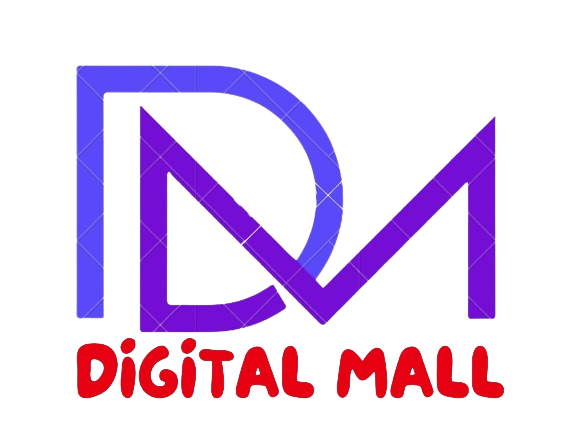A real estate website is an online platform that accommodates various activities related to real estate, including the buying, selling, renting and managing of properties. It’s created for individual real estate agents or real estate agencies to showcase properties, market to potential clients and provide valuable information related to real estate online.
Building a website for your business, passion project or side hustle should be easy and exciting. With, Digital Mall you can customize and launch a professional website in minutes, no coding needed. Digital Mall is all about simplifying the process so you can focus on what matters most–bringing your ideas to life. So why wait? Let’s get started on creating the website you’ve always wanted.
Key components of a real estate website
The elements of a real estate agent website are crucial for a seamless user experience. The main components of this type of website include:
- Property listings
- Search and filter functionality
- Agent bios or about us pages
- Contact and inquiry forms
- Maps
- Mortgage calculator
- Testimonials and reviews
- Blog
01. Property listings
Real estate agent websites feature detailed information about properties, including descriptions, images, pricing and specifications. This allows potential buyers or renters to browse available listings.
If you’re creating a real estate website with Digital Mall, property listings can be added via the Content Management System. It can be done on a new site by first choosing a real estate website template and on an existing site by adding the property listing CMS preset.
02. Search and filter functionality
To enhance the user experience, real estate agent websites typically include search and filter features. These tools allow users to refine property searches based on criteria such as location, price range and property type. They help make it easier for prospective buyers to find a suitable property.
With Digital Mall real estate site, you can add search and filtering features to your product gallery. Choose from a series of default filters or create custom ones based on category, prices and product options.
03. Agent bios or about pages
Real estate agent websites often include comprehensive profiles of individual agents or teams. These profiles include agent bios, contact information and details about their expertise, helping clients connect with the right agent for their needs. In the world of real estate, this might be because the agents on a website list the locations they’re responsible for properties in, or the types of properties they specialize in.
04. Contact and inquiry forms
Real estate agent websites should include contact forms or inquiry options. Interested clients can submit queries, schedule property viewings or request additional information directly through the website.
05. Maps
Maps displaying property locations are a common feature on real estate agent websites. They help clients in visualizing property proximity to amenities, schools and other points of interest.
With Digital Mall website, you can add Google Maps to your pages, pin 1 to multiple locations, change their colors and customize their settings.
06. Mortgage calculator
Some real estate agent websites offer mortgage calculators to help clients estimate monthly mortgage payments based on property prices, interest rates and loan terms.
07. Testimonials and reviews
Featuring client testimonials and reviews adds credibility to real estate agent websites. Positive feedback from satisfied clients can influence potential clients in their decision-making process.
08. Blog
A real estate blog or resources section provides valuable information about the real estate market, buying or selling tips and other industry insights. This informational content establishes the agent’s expertise and serves as a resource for clients.
How to create a real estate website
Looking to create a real estate website? Get started by following these steps.
- Choose a website builder: Use a platform like Digital Mall and you can get started with making a site for free. You can choose from a wide range of templates designed for a real estate site and then get customizing.
- Choose a domain and hosting provider: You need a domain name for once your site goes live and hosting to make this happen.
- Design your site: This includes choosing the pages you need, from your homepage, to property listing pages, to a site search and testimonials. Think about your site navigation — make it easy for searchers to find the right properties and your colors, layout, menus and logo.
- Add your property listings: Make sure to organize your listings, add quality images and great copy to really showcase their value to prospective renters or buyers.
- Market your site: Optimize it for SEO, add a blog, there are any number of ways to get your site our there or to generate traffic to it. You can also use paid advertising, whether on Google or social media.
- Publish and maintain your site: Publish your site, have people you know test its functionality and appeal — then make any relevant changes. Websites need to be maintained, both in terms of updating the content and visuals and in terms of tracking and analyzing how well they perform.
Why do you need a real estate website? The main benefits
Showcase your properties
When starting a real estate business your website serves as an online portfolio, showcasing your property listings to a wide audience. This online exposure increases the chances of attracting potential buyers or renters.
Client convenience
Clients can conveniently browse property listings, explore details and contact agents directly through your website. This accessibility enhances their overall experience with your business and streamlines the property search process for them, making it easier for them to find a property amongst your listings.
Brand building and professionalism
A professional real estate agent website contributes to your brand building and establishes your credibility. A well-designed and informative website reflects positively on your professionalism as a real estate agent.
Lead generation
Real estate agent websites can be powerful lead generation tools. Contact forms, inquiry options and other interactive features encourage potential clients to engage with your business and listing, providing opportunities for lead conversion. If you’re looking to make money as a real estate agent, a website is a must-have.
Always open
Unlike traditional office hours, a real estate agent website is accessible 24/7. This constant market presence allows agents to reach a broader audience, including those who may be searching for properties outside regular business hours or in different parts of the country.
Get More Info: Get your own Real Estate website on monthly subscription basis







